November 2017 Sustainable Development
Read the articles selected in November 2017
World Energy Outlook 2017
Source: http://asvis.it/

The energy consumption outlook shows important changes, with the growth of natural gas to a quarter of global energy demand, despite the resilience of oil demand, and the rapid rise of renewables, that marks the end of the coal era.
Se nourrir sainement quand on est pauvre
by Cécile Bouanchod
Source: Le Monde, 18 November
Everybody knows that a good quality if possible biological nutrition is essential for everyone but not all of us can afford it: under the threshold of 3.5 euros per individual and day it’s impossible a balanced diet, and in our cities, there is still who has to deal with the budget limits to self-feed.
World community has “collective” responsibility” to stop human trafficking, support victims –UN chief
Source: http://www.un.org, 21 November
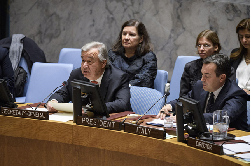
After the horrific images of African migrant people slaved and sold in Lybia, UN Secretary-General has remembered our collective responsibility before human trafficking, calling on to an action rooted in the international law, and on the measures adopted by the Member States against this trade.
Read more:
http://www.un.org/apps/news/story.asp?NewsID=58137#.WhV5CkriYdV
How’s life? 2017
Source: asvis.it/, 21 November
This report measures the level of well-being in Oecd countries and across social groups focused on people and their objective and subjective experiences life dimensions, which translate mainly in the indicators featured in the Agenda 2030’s SDGs.
Edouard Philippe dit non à l’écriture inclusive
Source: Le Monde, 23 November
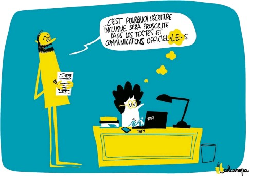
A circular published in the French Journal Officiel invites to avoid, especially in official texts, the inclusive writing, considering the masculine in the language a uniform gender-neutral. But any law won’t be able to abolish those linguistical evolutions that mirror a sensitivity spread in the society.
16 days of activism 2017
Source: http://www.unwomen.org
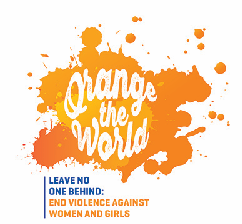
From 25 December to 10 November takes place the UN campaign against the gender-based violence, to raise the awareness on this problem worldwide. This year’s theme widens the focus on the most underserved and marginalised people such as refugees and minorities, for a world free from violence.
Read more:
http://www.unwomen.org/en/what-we-do/ending-violence-against-women/take-action/16-days-of-activism
Positive Peace Report 2017
Source: asvis.it/, 10 November
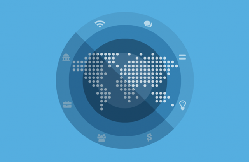
Positive Peace is a systemic framework of attitudes, institutions and structures that allow societies to address their major challenges. It is not only the absence of violence but a complex thinking considering the general health of a community in the interdependence with other factors.
The European Pillar of Social Rights in 20 principles
Source: asvis.it
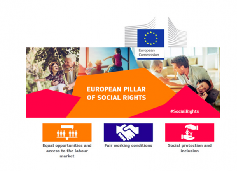
The European Commission has sketched out the Pillar of Social Rights of the citizens, built on equal opportunities in education and access to the labour market, in safe and fair working conditions, in social protection of unemployed, elderly, in good quality healthcare for everyone and in the inclusion of people with disabilities.
Chemists can help to solve the air-pollution health crisis
by Jos Lelieveld & Ulrich Pöschl
Source: Nature, 13 November
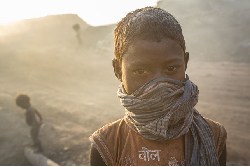
Air pollution is one of the leading five factors of disease and mortality worldwide, despite the “safe threshold” set by countries and the WHO. Nevertheless, it is not known the way different combinations of particulates interact with the environment and the body. Chemists can help to elucidate these relations.
Read more:
https://www.nature.com/articles/d41586-017-05906-9
World’s carbon emissions set to spike by 2% in 2017
by Jeff Tollefson
Source: Nature, 13 November

After a study presented at COP23 in Bonn, after the pause in greenhouse gas growth from 2014 to 2016, global carbon’s emissions are likely to reach in 2017 41 billion tonnes due to increased coal consumption in China, whereas is reported a shift from coal to gas in the U.S, and a global growth in renewables.
Read more:
https://www.nature.com/news/world-s-carbon-emissions-set-to-spike-by-2-in-2017-1.22995
Scientists close to finding methods to kill superbugs
by Alex Matthews-King
Source: The Independent, 14 November
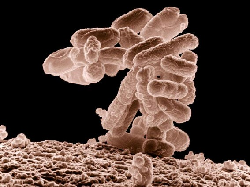
In the WHO’s World Antibiotic Awareness Week, scientists have revealed the role played by one gene segment in E. coli’s DNA in withstanding antibiotic treatments. The molecules involved in the controlling processes that deliver drug resistance could be the target of new cures.
Universal Children’s Day 20 November
Source: http://www.un.org, 20 November

In this day we celebrate the adoption in 1959 of the Declaration of the Rights of the Child and of the Convention on the Rights of the Child in 1989 by the UN General Assembly, that acknowledges in the children the best to which the mankind has to give and therefore an appropriate legal protection.
Read more:
http://www.un.org/en/events/childrenday/
Climate-change lawsuits
Source: The Economist, 2 November
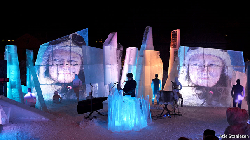
Although in many cases climate lawsuits have been dismissed by justices as lacking a causal link between emissions and environmental or health damage, the increasing commitments of governments in this subject and scientific advances are tearing down the legal obstacles to fighting the climate change in the courtrooms.
Falling walls: how repairing the ozone hole helped the climate
by Guus Velders
Source: Scientific American, 2 November
Thirty years ago the Montreal Protocol banned the use of chlorofluorocarbons, responsible for the ozone hole,e and contributed to climate protection since CFC are also greenhouse gases. But hydrofluorocarbons we use in their place for refrigerators also are potent greenhouse gases, and their growth is dangerous.
Read more:
The Global Gender Gap Report 2017
Source: http://www.asvis.it/
.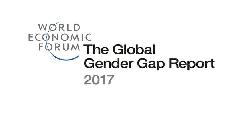
Although many countries have understood that women are a talent pool relevant for economic growth, worldwide progress on education has not produced equivalent gains in economic independence, earning opportunity and leadership. This analysis intends to deliver the basis for effective measures for reducing gender gaps.
UN climate conference to maintain ambition one year after Paris accord’s entry into force
Source: http://www.un.org, 3 November

From 6 to 17 November is taking place in Bonn the COP23, a climate conference that intends to complete the rule book for operationalizing the Paris agreement. After the global extreme weather events in the last months, the management of climate risk will be integrated into disaster risk management.
Read more:
http://www.un.org/apps/news/story.asp?NewsID=58026#.WgBvAmjWwdU
The Arctic Science Agreement propels science diplomacy
by Paul Arthur Berkman +et al.
Source: Science, 3 November
The Agreement on Enhancing International Arctic Scientific Cooperation signed on 11 May 2017 by eight Arctic States including the U.S. and Russia, shows the diplomatic relevance of scientific cooperation when the relations among nations are unstable and for an evidence-based and shared decision-making.
Read more:
http://science.sciencemag.org/content/358/6363/596.full
Rapporto sullo stato delle politiche per il Paesaggio
Source: http://www.asvis.it, 30 October
This Report contemplates the landscape in its constitutional dimension, as a heritage protection-worthy, because shaping our national identity, and in a broader juridical sphere, as space of practice of human rights and democracy, where the quality of life, economy and environment meet together.
Read more:
https://box.beniculturali.it/index.php/s/zWcOENcfGq6vX1f#pdfviewer
Roads to riches or ruin?
by William F. Laurence & Irene Burhués Arrea
Source: Science, 27 October
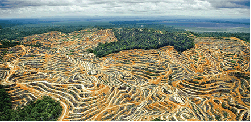
Roads building is seen as the most-effective mean to accelerate economic growth in developing areas, but their benefits vary and depend on local contexts. Large infrastructure projects should have a more pragmatic and strategic imprint, at less environmental and social costs.
Read more:
http://science.sciencemag.org/content/358/6362/442.full
World Discrimination at Work Report
Source: http://www.asvis.it/, 31 October
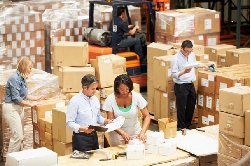
This Report delivers a comparative analysis on the policies and legislation that the 193 UN Member States present against work-place gender-based discrimination and harassment, extended in labour codes, anti-discrimination and equal-opportunity law as well as in penal codes.
A familiar face. Violence in the lives of children and adolescents
Source: http://www.unicef.org
Despite the growing awareness of the problem of violence, the mainstream attention is still concentrated in extreme cases such as murder or rape. This report intends to call on governments to legally acknowledge the pervasive, often familiar and hidden face of violations against childhood and adolescence.
Read more:
https://www.unicef.org/publications/files/Violence_in_the_lives_of_children_and_adolescents.pdf
Info
- Pubblicato il : 04/12/2017 Modificato il : 04/04/2019

